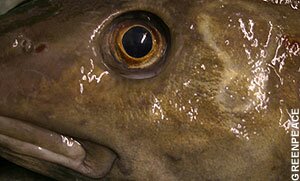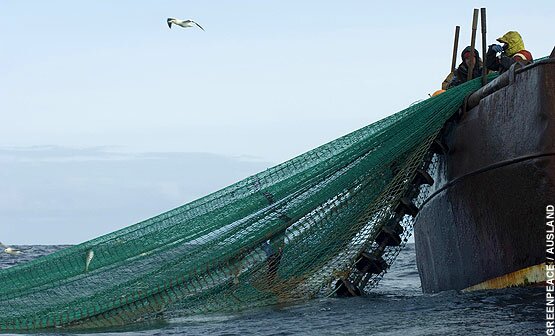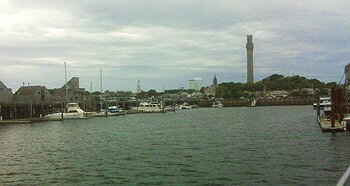Tag Archive for 'cod'
Despite the old adage, it seems that crime does pay… at least if you are the Stevenson family of Newlyn.

Cod - The Stevenson family were fined £1 for each of the 45 charges that they were found guilty of
As reported by the BBC, the family, who operate fishing trawlers in Cornwall, were prosecuted for routinely landing illegal fish.
Not only were they landing species they had no quotas for, but they were doing so by passing them off as other species, so it was all pre-meditated and well-orchestrated.
They also conveniently ran the auctions where the fish are sold, and falsified the records of what fish had been sold to match what the skippers said they landed.
And it was also profitable - it’s estimated that £4m worth of fish were landed illegally. All the more galling that the firm is run by Elizabeth Stevenson, who was the former president of the National Federation of Fisheries Organisations.
But we can take solace in the fact that they were caught and prosecuted. They were found guilty of a total of 45 charges. And they have been fined accordingly… or so the judge seems to think.
On top of paying legal costs (£66,000) and being ordered to pay back £710,000, they have just been fined for the offences. But the total fine of the actual fine was £45. Yes, £45, I didn’t misplace the decimal point or under-report anything. One measly pound for every charge for which they were found guilty.
Just to set that in context: they profited by over £4 million… and are being punished by getting to keep over £3.2 million.
Whilst some may shrug their shoulders and say, “Well, it’s all Europe’s fault,” they knew what they were doing, and they were trying to get around the system - the system that is of course there because of concerns over dwindling fish stocks and over-fishing.
Had they been trying to use their (clearly) considerable influence to make a point about a problem with discards, I would applaud them. Had they been making a point about destructive fishing methods like beam-trawling being unacceptable (and they would know all about beam-trawlers), then I would have sympathy.
But the truth is, it was all about making money, and to hell with the environmental considerations. These are the real pirates of Penzance but there is nothing romantic about it.
This makes me very angry, and you should be too. They are over-fishing stocks that belong to all of us. This is your money. These are your fish.
There is also a huge amount of irony in Elizabeth Stevenson’s response that, “It’s not going to be easy to find this sum of money. It’s huge.”
- Willie MacKenzie is part of Greenpeace’s Ocean Campaign. This blog post originally appeared on the Greenpeace UK website.

Seafish and the fishing industry are cod-a-hoop recently, because it seems that cod stocks are doing better.
You may have missed the news, but the story is that the EU’s scientific advice suggests that stocks of North Sea cod have increased five per cent in the last year, and are up a whopping 40 per cent from the average in 2005-2008.

Cod fishermen in the North Sea
Sounds like great news. And of course any increase in a rampantly-overfished population of animals is to be welcomed. But it needs to be set in context.
Cod stocks are generally at a historic low in the North Sea. Viewing numbers against last year, or five years ago, may indeed show a slight increase, but basic arithmetic will quickly tell you that five or even 40 per cent of ‘hardly-any’ is equal to ‘not-very-much’.
We need to look at the level of cod stocks decades, generations and centuries ago. That’s what we should be aiming for - managing our seas for the recovery and abundance of species rather than scrabbling around amongst the low digits snapping off every green shoot of recovery as soon as it breaks the surface. Charles Clover puts it into context here.
And then there’s the other good news - fishermen are voluntarily taking measures to reduce ‘discards’ (whereby marketable species like cod are chucked away dead, being over quota, under sized, or not very sellable).
This is indeed great news. I for one am delighted that measures like more selective nets are being used, and that areas are being closed to fishing to try and protect cod stocks and reduce discards. This is eminently sensible, and the sort of thing Greenpeace has been campaigning for for years.
Of course we should minimise discards, they benefit no one.
But again, let’s look at the figures in context. As it’s not enough to say we have a great scheme for reducing discards, unless it does the job, is it? And what is the EU scientists’ news on cod discards in the North Sea … why, last year they showed a dramatic increase in discards. Yes, an increase.
More cod were caught and discarded (chucked away, dead and wasted) than were caught and landed. Most of these were immature fish that will never have the chance to breed.
So, by all means let’s applaud those taking measures to reduce fishing capacity, minimise discards, set aside areas free of fishing as marine reserves, and use more selective methods … but North Sea cod are not out of the woods yet.
Clamouring for increased quotas and painting such a rosy picture of recovery does the fishing industry no favours.
- Willie MacKenzie is part of Greenpeace’s Ocean Campaign. This blog post originally appeared on the Greenpeace UK website.

I write this while looking out over the sea at Cape Cod realising that it is here along this coast that we humans have done the most damage to fish stocks.
Cod is the history of this coast and its people. It is utterly beautiful here in Provincetown where The End of the Line is being screened as part of the their film festival.
Despite wind and rain - yes, like the UK - this is a community that was founded on fishing bounty. It now lives on tourism.
My co-speaker at the Q&A was Owen Nicols, a young man who was born and bred here in Provincetown. He is studying for a PHD in Fisheries Science and works at the local Oceans Institute.
Continue reading ‘Cape Cod - where humans have done the most damage to fish stocks’


![]()




